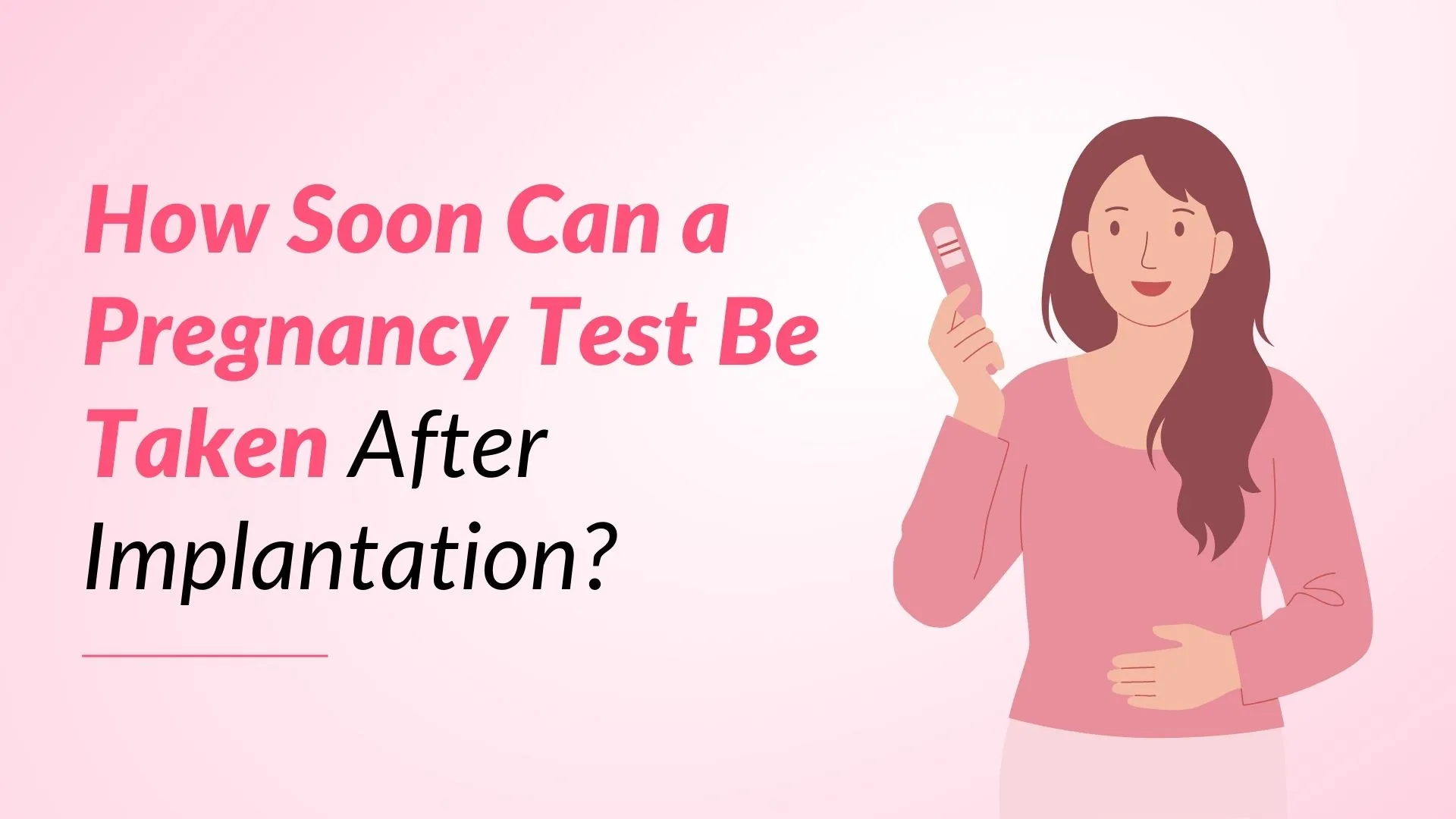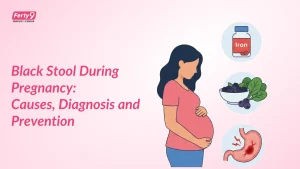Have you recently noticed some light spotting and are wondering if you could be pregnant? This can be an exciting (and sometimes confusing!) time. Many women experience implantation bleeding, which can mimic a light period. This can lead to questions like, “How soon after implantation bleeding can I take a pregnancy test? “
Understanding implantation bleeding and when to take a pregnancy test can help ease your mind and provide some clarity.
Learn more about the Period Calculator in our detailed guide.
What Is Implantation Bleeding?
Implantation bleeding is a phenomenon that happens when the fertilized egg attaches itself to the lining of the uterus. This process is essential for pregnancy, as it enables the embryo to establish a connection with the mother’s blood supply, which will provide the nutrients and oxygen necessary for development.
Implantation bleeding is often mistaken for a light period, but it has distinct characteristics. Understanding these differences is key to identifying this crucial step in early pregnancy.
Also Read: How Long after Implantation Bleeding can I Test?
When Does Implantation Bleeding Happen?
Implantation bleeding generally occurs 6 to 12 days after ovulation. Since ovulation typically happens around the middle of a woman’s menstrual cycle, implantation bleeding can be expected roughly a week before your next period is due. For women with a standard 28-day cycle, this may happen between days 20 and 26. For those who have undergone procedures like IUI, the earliest positive pregnancy test after IUI might align with this timeline.
It is essential to remember that every woman’s cycle is different, and factors such as ovulation timing, cycle length, and individual health can influence when implantation bleeding occurs.
Also Read: Implantation Bleeding vs Menstrual Period – What’s the Difference?
Implantation Bleeding Symptoms
Distinguishing implantation bleeding from a period can be tricky, but the following symptoms can help:
- Light spotting: Implantation bleeding is usually lighter in flow compared to a period. It often appears as light spotting or streaks of blood.
- Colour: The blood is typically brown or light pink rather than the bright red of menstrual blood.
- Short duration: Implantation bleeding is brief, lasting anywhere from a few hours to 2-3 days.
- No clots: Unlike a menstrual period, implantation bleeding does not involve the passing of blood clots.
- Mild cramping: Some women experience mild cramps during implantation bleeding, but they are usually less intense than menstrual cramps.
Also Read: What to Know About Period Blood Color?
How to Know It’s Implantation Bleeding?
To confirm whether spotting is implantation bleeding or something else, consider the following factors:
- Timing: If the spotting occurs earlier than your expected period and aligns with ovulation, it could be implantation bleeding.
- Flow: If the bleeding is lighter than your usual period, it’s more likely implantation bleeding.
- Additional Symptoms: Implantation bleeding may be accompanied by early pregnancy symptoms such as breast tenderness, fatigue, nausea, or increased sensitivity to smells.
If you’re still unsure, tracking your cycle and consulting a healthcare provider can offer clarity.
How Soon After Implantation Bleeding Can I Take a Pregnancy HCG Test?
After implantation, the body begins producing hCG (human chorionic gonadotropin), the hormone detected in pregnancy tests. The hCG hormone doubles approximately every 48 to 72 hours during early pregnancy. The key question is: How long after implantation does hCG rise?
- Blood Tests: A blood test can help detect hCG as early as 3–4 days after implantation, providing the earliest confirmation of pregnancy. The tests are more sensitive and can detect lower levels of hCG compared to urine tests.
- Home Tests: A urine pregnancy test typically detects hCG about 5–7 days after implantation. For most women, this is around the time of their missed period.
For example, if you’re wondering, “How long after implantation bleeding can I test?” it’s best to wait at least 4–7 days to improve accuracy.
If you take a pregnancy test 1 day after implantation bleeding, the results may be negative due to insufficient hCG levels. Patience is key for reliable results.
To improve the accuracy of a home pregnancy test, it is recommended to:
- Use the first-morning urine, as it is more concentrated.
- Wait at least a day or two after the expected period date if the initial test is negative.
- Follow the instructions written on the pregnancy test kit carefully.
Implantation Bleeding vs. Period
It’s easy to confuse implantation bleeding with a period. Here are the key differences:
| Aspect | Implantation Bleeding | Period |
| Timing | 6–12 days after ovulation | 14 days after ovulation |
| Color | Pink or brown | Bright red |
| Flow | Light spotting | Heavy flow |
| Duration | A few hours to 2–3 days | 4–7 days |
| Symptoms | Mild cramps (if any) | Moderate to severe cramps |
Understanding these differences can prevent unnecessary confusion and anxiety.
Conclusion
To recap, implantation bleeding is a natural sign of early pregnancy, but timing is critical when it comes to testing. Understanding when to test after implantation bleeding can save you from unnecessary stress and uncertainty. For the most accurate results, wait at least 4–7 days after implantation bleeding before taking a home pregnancy test.
If you’re trying to conceive and need guidance, the experts at Ferty9 Fertility Center are here to help. With personalized care and advanced solutions, your journey toward parenthood is in trusted hands. Contact Ferty9 Fertility Center today for support and consultation.




























